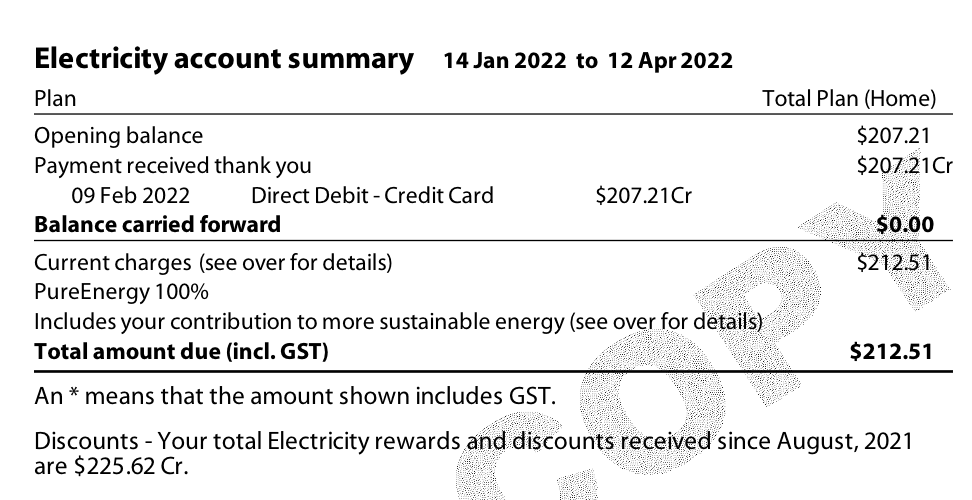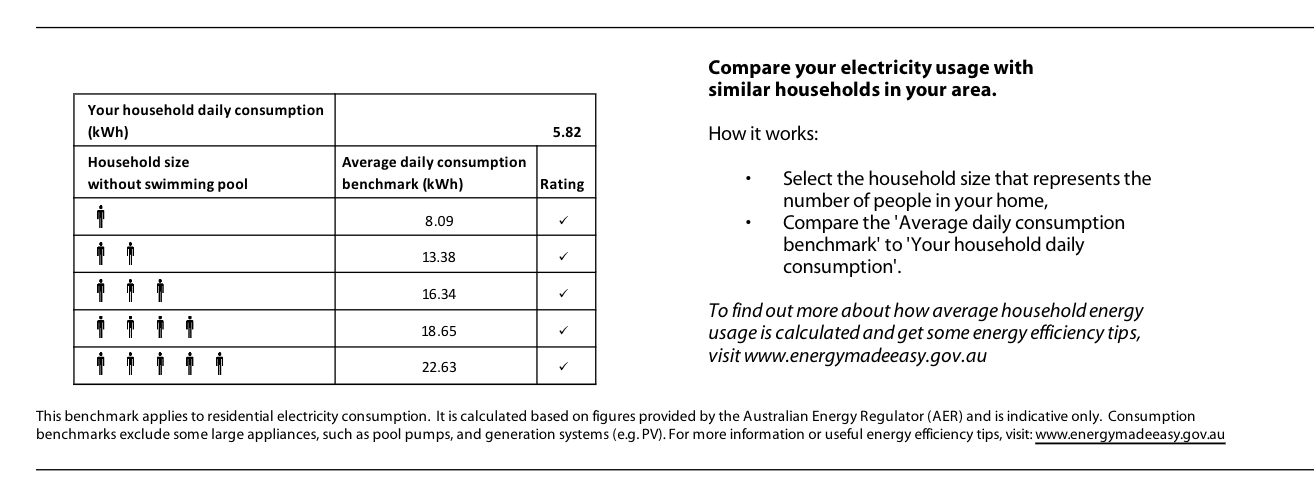Ever look at your power bill and wonder why it's so expensive?
You're not alone. According to Finder's research 26% of Aussies say energy bills are giving them financial stress.
To help you compare and save on your energy bills, we've given a breakdown of what the average electricity and gas bill is in your state using Finder's Consumer Sentiment Tracker.
If you're paying above the average, chances are you can get a better deal.
Keep in mind: These averages include bills for all household sizes and are only guidelines. The average bill may actually vary.
Average electricity bill in Australia
Here's how quarterly power bills compare across the country, state by state.
Residents of South Australia are paying the most for their bills, with residents of New South Wales coming in a close second. Western Australians pay the least for their electricity overall.
Average electricity bill by number of children
Generally, the more people you have in your household, the more power you'll chew up. Here's how average quarterly bills change based on the number of children in the family.
This reflects what we already knew – children are expensive! The gap between single-child and 3-child families is $65 per quarter or $260 per year.
Not only does each child have their own devices to power, but more children usually means a larger house, with greater heating and cooling costs.
Average electricity bill by generation
Our survey also grouped quarterly power bills by generation. Here are the averages for each age group.
While bills don't vary much for people under the age of 60, people born into the baby boomer generation (now aged 60 or older) have much lower average bills. This could be due to:
- Senior and pensioner discounts/government subsidies
- Lower electrical appliance use
- More likely to own a house and potentially a solar system
Average gas bills in Australia
While gas tends to be cheaper than power, that doesn't mean you're always getting a good deal. Comparing your expenses to what others are paying is a great way to reality-check your bill.
In this table, we've grouped average quarterly gas bills state by state. Keep in mind that our figures include every type of household, so they're only guidelines.
Based on this, residents of New South Wales pay the most for gas, with those residents in South Australia not too far behind. Residents of Western Australia are paying the least for their gas use.
Average gas bill by number of children
More children means a greater need for cooking and heating. Here's how quarterly gas bills change with family size.
The gap between households with no children and those with 2 is noticeable, increasing average costs by roughly $220 per quarter ($880 per year).
Average gas bill by generation
In our survey, we also looked at how gas bills changed by the respondents' age, grouped into generations.
Gas bills drop a little as people age, probably due to senior/pensioner discounts and rebates or smaller household sizes after kids have left.
How is my gas bill calculated?
Your gas bill is made up of 2 main things:
- Overall usage. More gas means more money. While it's not too easy to reduce usage for things like cooking or hot water, monitor your winter heating costs.
- Gas rates. A cheaper plan will save you money on the same overall use. It's a good idea to compare different gas plans if your bills are on the higher side.
How is my electricity bill calculated?
Your electricity bill is made up of 2 main costs:
- Overall usage. The more power you use, the more it costs. Reduce your use by investing in energy-efficient appliances, running an energy audit on your house or following some of our simple power-saving tips.
- Power rates. A better power plan will cost you less. It's always worth comparing your electricity options if your bills are creeping up above the average.
If you're looking to save money on your energy bill, see our 16 energy-saving tips.
How else can I understand my bill?
Your energy provider should include a comparison of your usage to other households in your neighbourhood. Usually, this ranks you against the average of various household sizes.
The first thing you'll see is a summary of your power that you've used over the period. We've given an example of an EnergyAustralia bill to help you visualise:

Depending on the provider, this will appear in different spots on your bill, but you should be able to find the average energy usage in your area.
Look out for something that looks like this:

7 reasons that can impact your energy bill
There are a few things that might impact how much electricity you use. These include:
- The electricity plan you're on – some providers offer discounts to get you to sign up or offer lower prices than their competition.
- Where you live.
- The size of your house – whether its a townhouse, apartment or freestanding property.
- Insulation in your place.
- The design of your home including the use of passive heating and cooling.
- Your personal habits including length of showers, whether you leave lights on or when you leave a room.
- Appliances – where you can, you might be able to save money on your bills by running more energy-efficient appliances.
Sources
More guides on Finder
-
Will you pay more for energy with the 3 hours of free electricity offer?
Energy giants are asking for the Solar Sharer offer to be delayed.
-
Arcline by RACV energy plans and review
Arcline by RACV offers electricity plans to Victorians that can be carbon offset. Find out if the energy provider matches your requirements.
-
Best electricity and gas sign-up deals
Get bonus rewards points and bill credit with some of the best energy offers available this month.
-
Nectr electricity plans and review
Nectr has appealingly low fixed rates for the 12 months after sign up. As a bonus, your energy plan is 100% carbon neutral at no extra cost to you.
-
Jacana Energy electricity plans and review
We’ll help you decide if Jacana Energy is right for your household or business.
-
Amber Electric plans and review
Find out if having access to wholesale power rates through Amber Electric is right for you.
-
Powershop review
Buy your electricity with Powershop and get flexible power options, green-friendly energy and online discounts.
-
Compare energy plans in QLD
There’s no time for snoozing. Hunt down the best electricity and gas providers in QLD with us so you can switch and save.
-
Momentum Energy review
Our verdict: Momentum Energy is a solid option if you’re searching for a green energy provider as well as reasonably priced plans in NSW, VIC, SA or QLD.
-
Aurora Energy electricity plans and review
Tasmania-based Aurora Energy is a good choice for those looking for a small energy provider that offers some useful discounts and is fully GreenPower accredited.


